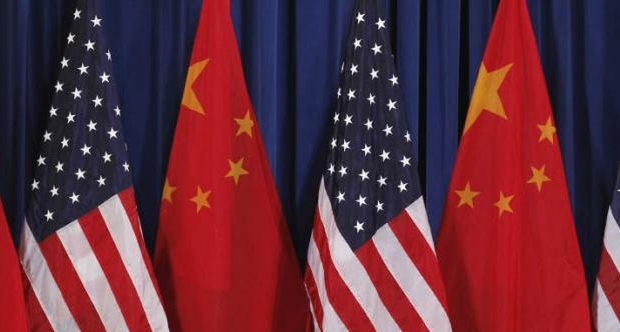Qin Xiaoying, Research Scholar, China Foundation For Int'l and Strategic Studies
Jan 04, 2017
Hillary Clinton would have been far more predictable for China, but the realities of the election require new thinking and the embrace of a positive sense of adventure.
Wang Yusheng, Executive Director, China Foundation for Int'l Studies
Jan 04, 2017
China has coped with the year’s upheavals with calmness and confidence, committed to its own principles in dealing with world affairs. The country must hope that US president-elect Trump will be similarly focused to meet the realities of our times.
Tao Wenzhao, Honorary Member of the Chinese Academy of Social Sciences; Fellow, CASS Institute of American Studies
Jan 03, 2017
While bilateral ties have been generally stable recently, especially in the wake of regular Xi-Obama meetings, people in both countries are waiting to see whether the relationship can transfer smoothly into the Trump era.
Mel Gurtov, Professor Emeritus of Political Science, Portland State University
Dec 22, 2016
President-elect Trump is lacking practical experience in China beyond making the occasional sale to a businessman. This does not translate into foreign policy, and undermines the “great relationship” that he’s claimed to have since the campaign. It seems that in Trump’s mind, everything China does is suspect.

George Koo, Retired International Business Consultant and Contributor to Asia Times
Dec 22, 2016
Unfortunately for President-elect Trump, he can’t ignore the conflagration of the Middle East that he will inherit from his predecessors. But he can avoid creating more conflicts and new regional tensions elsewhere if he sticks to the idea of getting along with everybody. In the case of China, Trump has the opportunity to break cleanly from the past.
Eric Farnsworth, Vice President, COA, Washington D.C. Office
Dec 22, 2016
China’s entry into Latin America since the beginning of the century has altered regional dynamics, providing opportunities for Latin American and Caribbean nations to diversify beyond a traditional reliance on the U.S. market. As the United States pulls up hemispheric stakes on trade, China is already positioning itself to rush in.
He Wenping, Senior Research Fellow, Charhar Institute and West Asia and Africa Studies Institute of the China Academy of Social Sciences
Dec 20, 2016
If the US should abandon or violate the Iranian nuclear accord, an agreement reached after years of negotiation and with consent of European allies, the results would only be negative for the US in terms of its international image, moral high ground and Trump’s start on diplomatic front. Such a move would signal to the world that the US cannot be trusted.
Don M. Tow, President, New Jersey Alliance for Learning and Preserving the History of WWII in Asia
Dec 20, 2016
Tow traces a history of U.S.-China foreign relations, beginning in the 1860s to today, focusing on a policy he calls “surround/isolate/weaken.” The reason that policy toward China of the past 65-plus-years hasn’t worked is because it is based on “might makes right”, and not based on understanding, fair play, and win-win solutions. Anson Burlingame recognized about 150 years ago that, in the long run, the best interests of the U.S. and the American people are best served by a China policy based on equality of nations.
Yuan Peng, Vice President, Chinese Institute of Contemporary International Relations
Dec 16, 2016
As the relationship between the US and China continues to evolve from one between the sole superpower and one of several major powers to one between the ‘eldest’ and ‘second brother’, the president-elect will need to be pragmatic and creative to preserve a deep mutual dependence between the two countries.
Jin Liangxiang, Senior Research Fellow, Shanghai Institute of Int'l Studies
Dec 15, 2016
Looking at the positive side of China-U.S. relations will enhance expectations for peace and stability. China and the U.S. share tremendous common interests and responsibility in maintaining economic prosperity and transnational security across the region. Talking about cooperation will deliver friendship and partnership while talking about conflicts will really create enemies.
Back to Top

- China-US Focus builds trust and understanding between the U.S. and China through open dialogue among thought leaders.
- Our Offerings
- Topics
- Videos
- Podcasts
- Columnists
- Research Reports
- Focus Digest
- Stay Connected
-
Thanks for signing up!
- Get the latest stories from China-US Focus weekly.